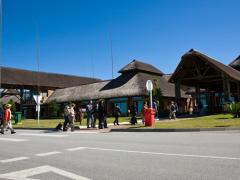Effective January 1, travellers departing from airports in the Netherlands will pay more than three times the air passenger tax they paid last year. It’s all part of an effort to reduce the number of flights out of Dutch airports and replace them with train travel because of its smaller carbon footprint, as the Netherlands and much of the rest of Europe get serious about reducing carbon emissions.
According to Travel Tomorrow, the tax per ticket on both short- and long-haul services has been increased from €7,95 (R143) to €26,43 (R477). This applies to all flights, even though long-haul train travel may not be available to a destination at all.
The country announced plans to increase the tax last year as part of its efforts to reduce carbon emissions. The increase means a narrowing of the gap between air tickets and train fares (currently more expensive than airfares). The country hopes that, with a lesser differential, this will encourage travellers to choose rail travel as the more environmentally sustainable option.
But Air France KLM CEO, Marjan Rintel told the Financial Times in a December interview that KLM does not view trains as a competitor, and that she herself uses the train for regular travel between Paris and Amsterdam.
The Dutch government intends to limit movements to a maximum of 440 000 by November 2023, cutting them by more than 10%. Rintel said KLM had responded to this by block-booking seats on the train services linking Amsterdam to Brussels and Paris, and that KLM intended to allow the buying of flight and train sectors in a single booking. She said the airline was currently discussing easier transits and integrated baggage services with Dutch and French train companies.
European governments have already taken steps to move traffic off flights and on to trains. Air France, in the same group as KLM, has already stopped domestic routes where there are rail services with a duration of 150 minutes or less, read here. About 12% of Air France’s domestic routes were removed from the schedule.













